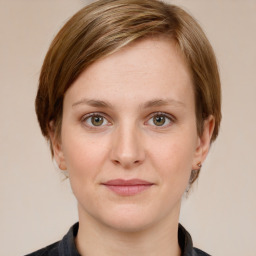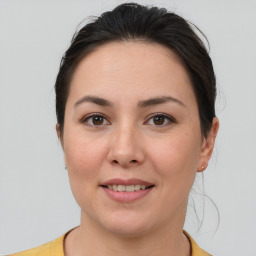This assessment will cover following questions:
- Examine the theories learnt under neoclassical approach.
- Evaluate theories learnt under forces that will shape organisation and their structure in the future.
- What are the principles of organisation that helps to manage the organisation structure.
INTRODUCTION
Organisational theory is made up of many approaches which are used to analyse organisations. Approaches of organisation are divided in many parts and this report includes discussion over classical approach and neo-classical approach of organisation. Classical approach includes Scientific management, principles of management and bureaucracy whereas neoclassical approach includes theories of Human relation school, Elton Mayo and contingency theory.There are various forces that shape organisation structure which are nature and size of organisation, customer orientation and the Japanese approach and organisation learning discussion over this have also been included in this report which have been followed by recent developments in organisational theory like modernist, post modernist and realist and complexity perspective and importance of technology.
Classical Approach
This approach of management suggests that employees have only physical and economical needs. Social and needs like job satisfaction does not exist and if they exist then they are not important (Tella, 2018). This theory of management focuses on factors like specialized employees, profit maximization and decision-making should be centralized. Theories which are included in this approach are-
Scientific Management theory- Proposed by FW Tailor, this theory of management stagtes that employees are required to treated as assets and company can make them work by offering them more monetary rewards. Employees have only need which is economical and this can be fulfilled by organisation to motivate employees. Tailor have also proposed principles which are-
- Science, not the rule of the thumb.
- Harmony, not discord.
- Co-operation, not individualism.
- Maximum production, in place of restricted production.
- Development of each person to the greatest of his capabilities.
- A more equal division of responsibility between management and workers.
- Mental revolution on the part of management and workers.
Principles of Management
These are principles of organisation have been proposed by Henry fayol with the year 1841-1925. Mention below some principles purposed by the Henry such as
Division of work- When staff members are differentiated than the end product can enhance due to the enhancing skills.
Authority- Managers of the firm must have the authority to give delegate tasks to the employees .
Discipline- Management consider all about obedience ,it is considered as a part of the mission as well as values with more respectful interactions.
Unity regarding command- Means the staff members must receive orders from the managers and also answerable to the manager (Berry Brangwynne and Haataja, 2018).
Unity of direction- Focuses that the all the staff members follow the same objectives also working under the one plan ,one manager,it will assure that the action can be coordinated properly.
Subordinate regarding individual interest- Such as one staff member must not enabled to become more crucial than others within the group.
Max Weber Bureaucracy
As per the Weber power can be listed within three types within any firm such as legal power,charismatic power ans traditional power. It is used to assure the economic effectiveness and efficiency within a firm. Mention below some principles
Rule based management- firms uses rules to control, thus lower level of the workforce follows the decisions of the higher level.
Up focused mission or in focused mission- If the firm serves board,stockholders or other agency than falls under up focused while to serve firm itself such as generating profit than called as in focused (Dolan and Rosenbloom, 2016).
Function specialized firm- Divided the staff members to do work as per their skills and talent and also type of work they can do within the firm.
Employment regarding technical qualification- Selection as well as recruiting is done on the basis of the qualification regarding technical skills.
Neo-classical Approach
Neo Classical theory is defined as the approach towards incorporating science of behaviour into management in context to resolve the issues raised by the practice of classical theory. In this premise of including the classing theory which was in terms of the organisation only needs employees for their own selfish motives and utilise them to get work done at workplace. But in neo classical approach the needs and expectations of the employees are also focused (Tella, 2018). To understand it better
Elton Mayo proposed the Human Relations School theory
this focuses on the managers who take more interest in the employees and treat them as the important valuable asset of the company. They take their opinions and lave them with enjoying interacting with each other at workplace (Guntrip, 2018). This helps to create the positive environment at the workplace and mainly support two things which are as follows
Personal Attention:
As the employees work in the organisation, they expect for being valued by the management and by their subordinates. So manager give them priority and listen their views regarding to any change needed in the strategies and approaches along with organisational structure. This impacts their thinking and they feel that they are important for the company.
Employees Motivation:
It denotes to the encourage the employees to do the work by giving priority to them. Mainly the servant leadership style is followed by the leader in which they work for the people and forward their demands and expectations to the management and takes their side. This motivates the employees at workplace and this enhances speed of work and they are more dedicated towards their work.
This model is better to apply in the organisation as this help in creating positive atmosphere.
McGregor Contingency Theory
It explains the establishment of the motivation in the employees, so the McGregor suggested 2 theories, Theory X and Theory Y.
Theory X: in this model, the leadership style was explained as authoritarian. So this focusses on the leadership style mainly. Leader in the organisation are work centred more than people centred. This impacts the mentality of the employees as the feel work pressure and dominated. So, its result in de-motivation among the employees and no scope for the improvement.
Theory Y: In this theory leadership style are people-centred. The value of the individuals in the company and they get appreciation for their work. Despite of fulfilling the basic needs of the employees, it emphasise more on fulfilling their esteem and self actualisation needs (Prottas and Nummelin, 2018). So the staff members can improve their performance and become more efficient. Meeting the expectation of the employees is very necessary for the management because their will be beneficial in terms of increasing the productivity.
Theory Y is more appropriate in order to achieve the success for the organisation because the satisfaction of the employees is important and it only helps to reach the organisational objectives.
Forces that will shape Organisation and their structure and its future
Customer Orientation
Customer orientation refers to observing the wishes and needs of the customers and anticipating them and then acting according to their needs and wishes. This includes providing goods and services to customers which are required to customers and not what companies have to offer. This includes orientation on the type, price and quality of the product. In present time most of all businesses are highly customer oriented and those which are customer oriented are successful too. There are various reasons which suggest organisations to be customer oriented. Companies when are customer oriented and provide goods and services to customers which are actually required to them enables themselves to get committed, loyal and more satisfied customers (Habel and et.al., 2019). For this, companies need to anticipate needs of the customers and its accuracy determines success of the company. Another important factor for this is satisfies and loyal employees which contribute their efforts to get more satisfied customers. Customer orientation leads to customer satisfaction as customer know what they need and what they want and by fulfilling their needs and wants companies enables themselves to get more satisfied customers which are loyal to company.
The Culture - Excellence Approach
Culture Excellence which have become prime objectives of all the companies there are various things that are included in this which are completion of task and job at time, staying close to customers, maximization of productivity, using relevant approach to manage people , promoting both centralization and decentralization. Along with these there are various theories that companies can use to get excellence in their processes. The theories that companies can use are TQM, McKinsey's 7 S structure and MBWA model. In this TQM which refers to total quality management is a theory and model of excellence which includes management of total quality of the product and service company create and sale along with an objective of continuous improvements. McKinsey's 7 S model includes improvement on 7 aspects of the company which company can use to improve its performance these are Strategy, Structure, System, shared values, Skills, Style and Staff (Oswald, 2016). Companies can use this model to improve their performance. Lastly, MBWA model which refers to management by wandering around, this helps to connect with team members in this one can get up from desk and talk to team members, work with them, to ask questions and to help them when needed.
Japanese Approach
There are various theories that are known as Japanese approaches. These approaches have focus on improving product quality and continuous improvements. Main theories which are known as Japanese approach are TQM which focus on customers, continuous improvement and total staff participation. Elimination of Waste which is another Japanese theory under this there are seven basic approaches which are Focused factory networks, Group Technology, Jidoka's Quality at the source, Just-In-time production, Uniform plant loading, Kanban production control system and Minimized setup time. All these approaches seeks to reduce the waste which will increase effectiveness of the organisation and at the same time which will reduce cost of the organisation leading to increase the profit of the organisation. Other important Japanese philosophy is Kaizen which also focus on improving effectiveness, satisfaction and effectiveness. The core principles of Japanese Kaizen are-
- Standardised Production which can be repeated and is organized.
- Focusing on measurability and evaluating progress using data.
- Comparison of results against requirements.
- Innovating new and better ways to achieve similar results.
- Responding to changing circumstances and evolving your methods over time.
Organisational Learning
Process of creation, retention and transfer of knowledge within an organisation is known as organisational learning (Polese and et.al., 2019). Key aspect of this theory are that people learn when they interact with others in the organisation. For organisation learning, organisation should-
- Develop a culture that prizes knowledge sharing.
- Encourage learning from failure.
- Encourage employees to continue their education.
- Allow individuals and teams to challenge the status quo of the organisation.
There are various factors which show significance of organisational learning, which are-
- Increased Job Satisfaction of employee.
- Lower turnover rates.
- Increased productivity, profit and efficiency.
- It helps in developing leaders at all the level of organisation.
- Enhanced and increased adaptability of the organisational people.
Present working environment suggests that all these factors will shape organisation and its structure in future. There are various reasons behind that most important is success of the organisation in all its form like increased productivity, reduced waste, increased customer satisfaction and loyalty of the customers towards organisation. Companies when adopt all these then it affect structure of the organisation in this organisation have to involve all its people and give them authority so that they can try something new and contribute to effectiveness of the process in organisation.
Read More :- Impact of Organisation's Culture and Politics
Recent developments
To shape organisation and its structure recent developments also contribute which are modernist and postmodernist, importance of technology, cultural perspectives orientation of organisation towards culture and changing culture of people who are connected with organisation mostly its customers and power-politics perspectives refers to level and type of the power in organisation and politics in organisation (Da Costa, Bui and Zwart, 2017). These have been explained below-
Modernist and Postmodernist refers to organisations which are Producer-led specialization and are centralized and deterministic and on the other side organisations which are postmodernist customer-led diffusion and are devolved and collaborative. Modernist organisations maintain their relations with stakeholders in form of financial, economic and profit maximization manner and postmodernist organisations maintain their relation with their stakeholders in ethical and socially conscious manner.
In future most of the organisations will be shaped by technology as technology have become most important factor that contribute to success of the organisation. Advancement of technology and its frequent adaption is very important for organisational success (Shimanovskaya, 2019). Technology is key factor that affect organisational structure as where technology is given preference structure of the organisation is simple are there are fewer people in the organisation as most of the work is completed by technological assistance.
CONCLUSION
On the basis of this report it can be concluded that organisation theories which are classical and neo-classical which further includes theories like scientific management, principle of management and bureaucracy in classical. These were adapted and practised in organisation which were profit oriented and productivity oriented and neo-classical approach which includes theories like human relation school and contingency theory which focus on employees and their capabilities. Later this report included factors which can influence organisation and its structure in future which are customer orientation, cultural- excellence approach, Japanese approach and organisational learning all these have capability to affect organisations in future as increased orientation of organisations towards this factor and these factors are also known as success factors.
Score the Top Grades in Academics by Placing Assignment Order Now!
Concerned that you won't finish your assignment in time? Do not worry! Our writing service provides prompt, high-quality support. If you are looking for assignment help UK, you can contact Assignmentdesk.co.uk. We provide outstanding quality assignments at pocket-friendly prices to the students. We have a team of professional writers who can assist you with the assignment writing task and help you to score high grades. Our experts are also skilled in providing essay writing service UK, and they have vast knowledge in dealing with students writing problems. Our main motive is to relieve students' academic worries and help them get high grades in the semester. Contact us today and get the best writing services like dissertation help, custom writing help and much more.
You May Also Like:
Understanding Operations and Logistics
Management Accounting and its Importance


 Company
Company













